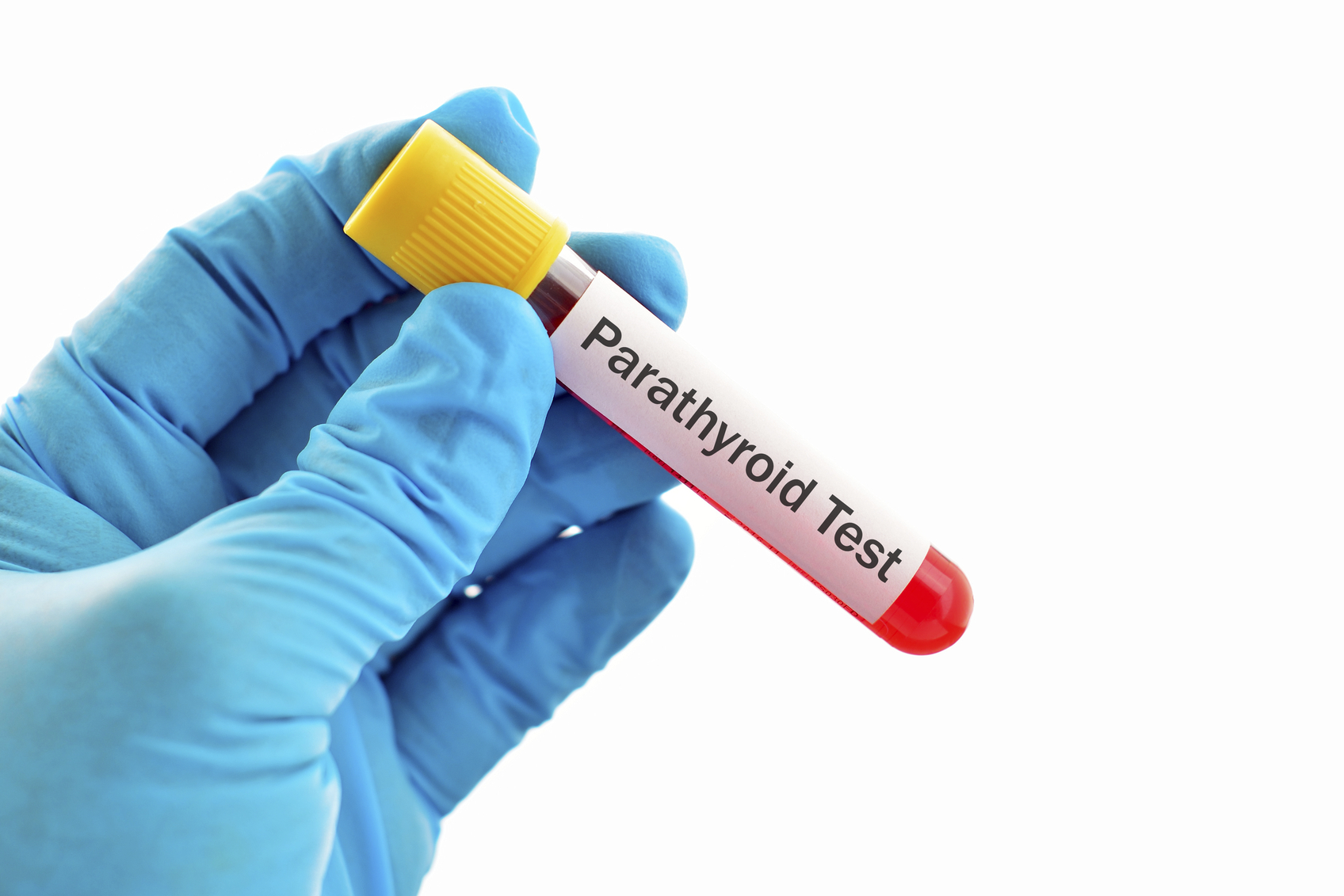Diseases of the parathyroid glands - Part 2 hyperparathyroidism

As previously explained the 4 parathyroid glands are situated in the neck behind the thyroid. Each the size of a rice grain they produce parathyroid hormone (PTH) which plays a significant part in maintaining the correct levels of calcium, phosphorus and vitamin D within the body.
About Hyperparathyroidism
When this condition is present too much PTH is produced leading to rising blood calcium levels and low blood phosphate levels. The main cause of primary hyperthyroidism is a benign (non-cancerous) tumour growing on one of the parathyroid glands (An adenoma) whilst secondary hyperparathyroidism is caused by kidney failure or lack of Vitamin D which lowers calcium levels.
As initial symptoms are mild and non-specific the condition is often only picked up when having a blood test for another treatment - about 80% of patients are found in this way.
The classic symptoms are colloquially described as “bones, stones, abdominal moans and groans” and include:
- Fatigue
- Abnormal thirst
- Excessive dilute urine
- Nausea and lack of appetite
- Stomach pain
- Constipation
- Weakness
- Anorexia
- Mild depression
- Mild cognitive or neuromuscular dysfunction
Left untreated, patients can present with kidney stones, bone pain and fractures, peptic ulcers or renal damage and they may have decreased bone density in areas like the forearm or hip. In severe cases high calcium levels can lead to coma.
Treatment of Hyperparathyroidism
Primary hyperparathyroidism can only be treated by the removal of the adenoma.
Secondary hyperparathyroidism due to vitamin D deficiency is treated with high-dose vitamin D (colecalciferol) supplementation. If due to chronic kidney disease it can also be treated by Cinacalcet which is a drug which mimics the action of calcium on tissues reducing parathyroid hormone levels and thus calcium levels.
There is now increasing use of this drug in patients with severe and refractory primary hyperparathyroidism if they are not well enough to undergo surgery.
All patients with hyperparathyroidism should avoid a high calcium diet and should drink plenty of water to maintain hydration. Vitamin D requirements are increased in hyperparathyroidism and should be continued.
If you would like to see me discussing this condition on a video please click here
Please see the first part of this post which discusses Hypoparathyroidism (click here)
Although every effort is made to ensure that all health advice on this website is accurate and up to date it is for information purposes and should not replace a visit to your doctor or health care professional.
As the advice is general in nature rather than specific to individuals Dr Vanderpump cannot accept any liability for actions arising from its use nor can he be held responsible for the content of any pages referenced by an external link.










